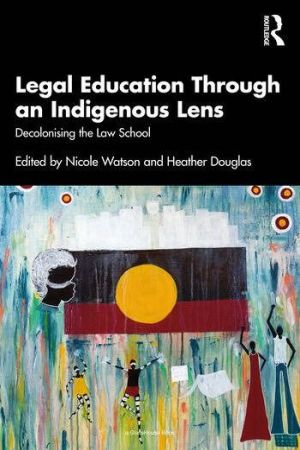
This book provides a comprehensive resource for accommodating and pursuing Indigenous perspectives in legal education.
The book is divided into three sections. The first section highlights the continuing issues that Indigenous people face in law schools, and universities, including the ongoing impacts of colonization and intergenerational trauma, institutional racism and exclusion, and the denial of historical acts of institutional theft. This section also includes chapters that explore arguments for the recognition of Indigenous legal knowledge, of knowledge about the impact of settler law, and the incorporation of Indigenous concepts, laws and ways of thinking about settler law across the curriculum. The second section explores how Indigenous ways of reading and thinking about settler law make a difference to how settler law is understood and interpreted. Contributors consider the power of storytelling, and of situating Indigenous law as a form of natural law; they also address the prospect of law’s decolonization. The third section of the book grapples with how traditional law school subjects can be taught through an Indigenous lens, including torts, public law, property, and criminal law and sentencing. Throughout, the book demonstrates the importance of, and offers practical advice for, teaching law in a way that includes critical Indigenous perspectives.
This book will be of enormous value to teachers, researchers and students in law, legal studies, and indigenous studies, as well as others with an interest in decolonizing legal education.